#religious trauma and begin queer
Explore tagged Tumblr posts
Text
It's so funny to me to give my mom my perspective as a gay person bc she's goes

#its like giving the queer perspective at a conference :3#okey but have u considered...#and DAMN everyone's mind exploded!!!!#anyways we were close to a family that was slowly entering/collaborating into making a cult#those were childhood friends#and they all end up begin either lesbians or bi#i just gotta say they're so iconic#we haven't talked in a looong while but they're still awesome#also them 🤝 us#religious trauma and begin queer
2 notes
·
View notes
Text



The secret of happiness
was always concealed from me
But now that it’s been expressed
your secret’s revealed to me...
#pet shop boys#neil tennant#chris lowe#synthpop#pethead#queer#nonetheless#the secret of happiness#music#lgbtq#trans#got this at the beginning of pride month but i forgot to post it here and this is basically my psb archive lmao#tsoh is my favorite song on nonetheless and will forever be That bitch in my eyes because its so.... neil outdid himself with that one#but also it was heavily inspired by one of my favorite psb songs ever: metamorphosis#so i decided to combine two tattoo ideas in one since both songs share butterflies as a symbol of change (and more in the case of tsoh)#the boys have always been there for me since even before i started my transition and nonetheless as an album means the world to me#there's a whole sob story behind this simple word that i won't share because who wants to hear about religious trauma and depression#but yeah i love neil and chris so much and i'd take a bullet for them because they're the reason i'm here today#happy pride month#and yes i did flip the photo because it's really hard to take one without help skdk
8 notes
·
View notes
Text
looking up from my 4 1/2 hour g**d *mens playlist: i'm going through something
#something something two sides of the same religious trauma coin#something something realizing i was queer as the beginning of a long Fall - how can a kind of love be forbidden?#unironically thank you to this fandom for the transformative works because the source materials are so fucking lacking#also do i still have a thing about tenant all these years after dw yes i absolutely do thanks
6 notes
·
View notes
Text
as a queer american with religious trauma and ALSO a bachelors degree in religion, what bishop mariann budde did moves me in ways i can’t even begin to explain fully. the sitting u.s. president has perverted religious beliefs to spread hate and vitriol, and bishop mariann edgar budde used true religious faith and values to call upon his conscience and ask him to give mercy towards the vulnerable people in this country.
so many anti-theist “leftists” will claim that religion has no place in revolution and yet not do anything while this brave, faithful, and revolutionary woman used that very thing to resist the fascist actions of the sitting u.s. president. she has more courage than i could ever imagine having, and i don’t think i’ll stop thinking about her anytime soon.
#text#growing up religious#religious trauma#religion#anti-theists can go fuck themselves#revolution#resistance#mariann budde#bishop mariann edgar budde#using religion for resistance#i have a religion degree#united states#usa#fascisim#antifascist#leftism#queer
178 notes
·
View notes
Text
GMMTV 2025 - Hot Tops and One Bottom
GMMTV offered up ONE straight show, and even though I'm salty that I didn't get Midnight Museum 2 and despite the current state of the world, I have never been happier to be alive at this exact moment that I'm living in. GMMTV really cemented that it is Disney BL, and said FUCK THEM HETEROS!

As usual, I'm listing what shows I'm most excited to see from GMMTV's annual unveiling, but in order to be fair to the other shows, I will not consider one of the shows in the rankings because I am a Jaidee fan first, and a human second:
Dare You to Death

My boys are giving me ~Murder, Manipulate, Make-Out, and MAYHEM~ so I'm already seated, sat, and sitted. I've always thought Joong should play a character who was insincere and a bit crazy, and Dunk should lean into his haughtiness (emphasis on HOT), so even though all these other shows look great, they aren't JoongDunk trying to solve a murder while trying to not murder each other, and it would be unfair of me to hold that against everyone else. I was going to take whatever I was getting from them, but THIS?! Sorry, to everyone else, but y'all never stood a chance.
#1a - Memoir of Rati
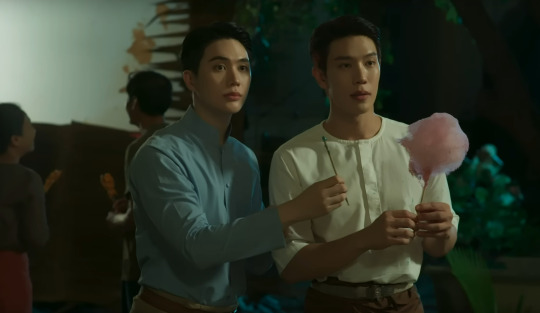
Moment of honesty - Inn and Great are fine as fuck. They are already attractive to begin with, so to put them in a historical drama, of course, I'm going to eat it up. This is a serious piece about political and social tensions which I have no doubts they will carry into getting some awards for it. I was getting worried that these two weren't going to have another show together next year, but not only did GMMTV give them one of the meatier plots, the series also has Aou and Boom in it with an amazing story as well, so this was easily my top choice.

Or at least it was my top choice until . . .
#1b - Ticket to Heaven
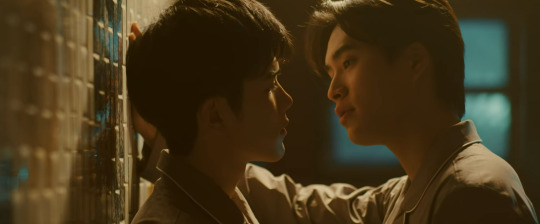
Religious trauma aligned with Catholicism is my special brand of queer angst, so this series already has me all the way fucked up. Fourth is such a phenomenal actor and Gemini always acts his ass off, so I know they will have me in a fetal position every single episode clutching my rosary and praying for God's mercy since I'm already in my feelings about this. The heathens in the room better read up on some biblical references because if you thought I was doing too much over a cross necklace in Let Free the Curse of Taekwondo and the praying in The Warp Effect, I Saw You in My Dreams, and Marahuyo Project, block me now because that was only the tip of the religious iceberg.
#2 - Cat for Cash

Although I'm a vegetarian, I'm a Disney villain who strongly dislikes animals, yet even I was happy to see First getting advice from cats on how to make coffee and how to win over Khao. This is the FirstKhao romance we have been waiting for! It looks soft and sincere, and even though the plot involves hearing cats, First as the worst debt collector and Khao as a grieving sad boy are their most realistic characters they have ever played. The series also looks like it's going to make me cry, so thank goodness Satang showed up to make sure I would be emotional about every show GMMTV gives me next year.
#3 - That Summer

On the topic of Satang, I'm shocked that I clicked with this trailer. I was ready to write this off as a Hallmark series due to its plot about a prince with amnesia falling in love with a commoner until the trailer revealed that he doesn't have amnesia, and the commoner knows he is a prince. The trailer situated the problem will come from their class differences plus Mond is kissing a homie (in secret), and since I just asked for more series with sad wet boys on the beach, this show goes at the top for GMMTV delivering me something I didn't know I wanted but a show I definitely needed.
#4 - A Dog and a Plane

Tay and New got me by the throat in 2019 and 2024 with Dark Blue Kiss and Peaceful Property, and even when I wanted to be mad at Cherry Magic, I couldn't because these men always sell the hell out of a ship even when they shouldn't. I'm a Jaidee fan first, and a human second, but I'll throw on some polar bear and whale jammies any day to join the Polcas because Tay and New have not disappointed me once in their joint shows or individual shows. So here I am, super duper excited to see New play a GAY flight attendant (a stereotype I love to see) whose man is trying to screw Pun only for Tay to take the hush money yet still catch feelings AND FLIGHTS! Marc's there too, so it's time I was served openly gay men who are trying to join the mile-high club since it's been over a decade since I got Pedro Almodóvar's I'm So Excited.
#5 - My Romance Scammer

I support marriage equality, but I do not believe in the institution of marriage, so I'm thrilled that GMMTV decided to throw me some gay divorce the same year gay marriage was legalized! Next, I'm getting the odd ball couple of Ohm and Fluke with Fluke being a dummy who falls for the first man who is nice to him, only for Marc to think he has a great relationship with Junior, BUT IT'S ALL A SCAM! I will probably end up defending this show with my life because this is the romcom romcoN I deserve!
Side Quest - Tarot Card Series
The theme for this year's announcement was "Riding the Wave" but it should have been "Wheel of Fortune" because there were a lot of shows about destiny and changing the future, so I'm going to rank those in a quick sub-category:
1) My Magic Prophecy

This is the dynamic I want to see from Jimmy and Sea. Jimmy IS a doctor, so getting a clean-cut smarmy version of him will pair so well with muscular Sea being a jerk. I was going to make a quirky comment about how they can now see the future as a reference to Last Twilight, but I'm still salty about that show, so I'll just be happy for them and THIS show.
2) Head 2 Head

I'm excited for the Only Boo kids because I think they should've gotten the My Love Mix-Up remake since I think they do well with being complete opposites that make perfect sense being together. This is also how I found out that Surf from I Saw You in My Dream is now with GMMTV.
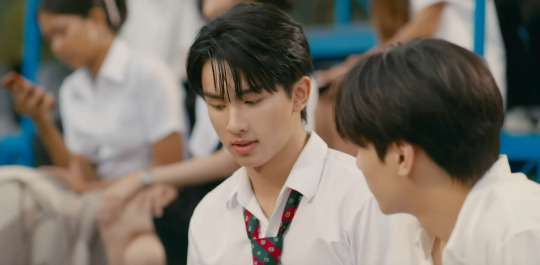
So although it was awkward to realize GMMTV had acquired another BL boy under my chismosa nose (am I slipping?), it's nice to see the company staying on brand as Disney BL in its attempt to capture all the Pokemon Avengers BL Boys.
3) Wu

Since I've been watching High School Frenemy through my dash, I know plenty of people will be ecstatic to see Nani and Sky play soulmates, again (because High School Fremeny is gay af!), but I'm showing up because I got the red bracelets of destiny tying the boys together!
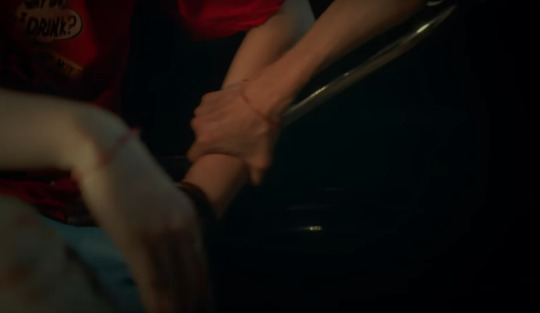
The trailers this year were surprisingly lax on the colors, so I'm taking what I can get how I get it. Bring me the RED STRING OF FATE!
4) MU-TE-LUV

This is Club Sapan Fine with a different name so it's going to be campy and messy. But do I think GMMTV will handle fems well? No. Am I pressed about it? Also, no. Because I actually watch AND enjoy Club Sapan Fine, so if GMMTV wants to try its hand at wild wacky camp in an anthology-style series, I'm down to clown, at least for the queer episodes that is.
5) Melody of Secrets

This was originally going to be number three on my Tops List, but as the trailer continued, I got more confused. Then, Force's face blurred and it looked like he got snatched by a demon, so I got scared. Like real scared. I don't eff with los espookys, so I'll be watching this show with the lights on and my Care Bear squad to protect me.
Honorable Mentions
I watch ALL GMMTV queer shows (and even the ones that only I think are queer), so I'll still enjoy something about these shows, but they were just lacking that special razzle dazzle:
Burnout Syndrome

Director Nuchy. Gun in black lipstick. Gun being a sex worker. Off being an asshole. Thor. Poly(?). This should have been my Holy Grail, but I can't believe the show will give me a proper love conflict when OffGun are a branded pair. Also, Nuchy gave me ToddBlack, who I will NEVER be over, so even though I know she can and will give me *THE* toxic couple to root for above all other toxicitos, unless these two are about to drown each other in that bathtub and play Olympic-levels of mind games with each other, I'm reserving my excitement until it airs.
Me and Thee

A soap-opera loving mafioso. Pond in suits with slicked-back hair. Phuwin being beautiful. Santa looking delicious. Est back in his Naughty Babe assistant mode. Perth. COLORS! Just like Burnout Syndrome, on paper it looks like something I would devour, but a third of that trailer was Pond and Phuwin in a bathtub, and in my Michelle Visage voice, "stop relying on that body" even if that's the biggest reason I'll be showing up to watch.
Whale Store

Milk licked cat food off of Love's finger, and I fear this might be too lesbian for me. I don't kink shame, and I'm always down to eat a girl out go down, but cat food? Really, sis? On top of that, this felt like a JittiRain series with Love's character clearly hiding something that is going to hurt Milk's character, then the side couple was crying and making everything awkward. I support the lesbians. I support queer rights AND wrongs. I'll be repeating this even as I'm watching it.
Boys in Love

GMMTV was smart putting all the new kids in a show with Papang x Podd as the little older romance crumbs to keep us satisfied for the time being, but that's also why I'm being petty. If this is the stepping stone for Papang and Podd to be leads for GMMTV 2026, then I'll take what I can get, but I feel like Oliver Twist asking for more porridge, when I should already be getting a damn buffet!
Love You Teacher

This show almost had me in the first half. Sam's character was giving me everything. The premise was solid. Perth was an already gay man in a long-term relationship with his boyfriend. Things were going well even with the accident. Then, the show brought on the real plot --- seven-year-olds. Jesús Cristo. It was a lovely time up until then, and now, just like the cat food, I'm realizing new things about myself and my boundaries on a random Tuesday morning, and I don't like it.
Girl Rules

This is the female version of Only Friends saran wrapped in women's empowerment. No me gusta pero lo voy a ver because I support queer wrongs even when they are oh-so-very wrong.
The Love of Siam: The Musical

What. The. Fuck. But also, sign me up!
Dishonorable Mention - Only Friends 2: Dream On

I've reached new heights in my pettiness because this show is in Petty Prison before it even airs. My blog is a living record of how badly I wanted Minx Mix and Flirty Fluke in the first season of Only Friends. It was the only thing I could think about; then, I ended up hating the first season, so I counted my blessings that Minx Mix only showed up for two whole seconds and Flirty Fluke was nowhere in sight. And now this has happened. This is a lesson in "be careful what you wish for" because I have never been more upset that I finally got what I wanted. Unless the show gives Boston his cake and lets him eat it to, I'm not watching it. Not Minx Mix, Flirty Fluke, or Ohm's body could convince me to do this a second time.

#gmmtv 2025#I support the girls‚ the gays‚ and the goths#and strangely‚ I'm kinda get all of those#I support queer rights AND wrongs#dare you to death#Memoir of Rati#ticket to heaven#cat for cash#that summer the series#a dog and a plane#my romance scammer#and so much more
161 notes
·
View notes
Text
Ravi Fic Recs (Part 2!!)

Separated into categories and listed by word count from least to greatest. AO3 ratings are highlighted -> Gen Teen Mature Explicit Not Rated (NR)
🔥 labeled fics are some of my personal favorites!!
Please read tags/descriptions before to avoid any triggering or explicit content. Many of these fics discuss childhood cancer, chronic and mental illness, explicit sexual activity, and/or traumatic injury.
Basically all of the romantic/sexual pairings w Ravi are rarepairs (because 9-1-1 can't seem to bother giving him character development 🙄) so if you don't vibe w a ship, just don't read it. I included some great non-slash fics, and an entire section for Buddie-centric fics.
118 Friendships 🚒
flying in the friendship ship by moonlightcanary | G | 1k | Buck apologizes to Ravi after 8x11, One-shot, Loser!Buck This Is An Emergency (Where's That Fucking Ambulance?) by fangirling-feels (fangirlingfeels) | G | 1.3k | Hen and Buck leave something at the hospital, Crack, Friendship, Ravi suffering with A-shift Dinner with Ravi by GatorGirlNC429 | G | 2.2k | Bathena invite Ravi over for dinner, 118 Family Feels, Heartfelt, Bobby & Ravi Friendship bats & boundaries by tawaifeddiediaz | T | 3.6k | Ravi teaches Eddie cricket, Sports Vernacular, 118 Friendships 🔥Feeling Good, Like I Should by sterekdiva | G | 4.5k | Buck & Ravi Friendship, Fluff, 5 + 1, Post 8x11, loser!buck hanging out with coolest guy ever no one word for it by iphigenias | T | 5k | Lucy & Ravi Friendship, Lucy POV, Queer Friendships The Hangover. by bananableu | G | 7.3k | Chim’s bachelor party part 2, they lose Buck, Bad Acid Trip, (unfinished but excited to see where it goes!) 🔥24 Hours on the Clock by Daisies_and_Briars for 42hrb | M | 14k | q-word shift from hell, Multiple POVs (including Ravi), Miscommunication, Chimney on his last nerve, 6 Idiots + 1 Firehouse, Buddie Getting Together
Ravi Lore 📚
🔥contagion by shortndiaz | G | 1k | Ravi spec for 8x14/15, Mentions of Cancer, Buck & Ravi Friendship (genuinely sweet) 🔥5 times Ravi exhibits autistic behaviors +1 time he gets diagnosed by shortndiaz | G | 2k | Background May/Ravi, 118 Family, Fluff, hint of autistic!eddiediaz 🔥i wish i could tell you this story and not be in it by kow2 | G | 1.5k | Childhood Trauma, Cancer, Religious Symbolism, Introspection, Panic Attack (kinda?) Desi Boy by Ty_Pod | G | 4k | Ravi introduces the 118 to Indian food, Cooking with Bobby, Diwali, 118 Family Feels the beginnings of a dream by tawaifeddiediaz | T | 4.2k | Ravi at the Academy, OCs, Pre-Season 4 the cost of doing business by PretentiousSwanQueen | T | 5.4k | Landlord!Ravi, Secret Relationship Buddie, Ravi/OMC, Gossiping, Death of the loft (RIP) 🔥Arachnaphobia by seth_lost | T | 5.8k | All about spiders, Ravi’s pet spider, 911 calls, Minor Injury 🔥the world is so much wilder than it seems by Daisies_and_Briars for timeshareindestin | M | 9.8k | Mer!Buck AU, 4x06 “Jinx”, Buck POV but all the plot is about Ravi, Buddie terrorizing Ravi, Jealousy, possessive idiots 🔥Are You Good to Stay Here? by orphan_account | T | 11k | Ravi POV, Cancer, Childhood Flashbacks, Survivor’s Guilt, Hurt/Comfort, Suicide (oc character)
Whump ⚡️
Prison Break by Hellfire_My_Love | T | 1.1k | Ravi gets jumped at the prison, Season 5a, Canon-Typical Violence, Injury, Hen & Ravi Friendship suffocation (no breathing) by doveious | M | 3.3k | The pier accident, Whump, Drowning, Minor Character Death (in the emergency) Paper Bags by fairystars | G | 3.7k | Ravi gets sick on a call, Crack, Particularly Graphic Injury, Vomiting, 118 Family Feels 🔥pick up every stitch by wenttoafortuneteller | T | 4k | Ravi POV, Sniper Arc/4x14, Hurt/Comfort, 118 as a Family, Panic Attack 🔥But Not Enough to Save You by orphan_account | T | 5k | Ravi experiencing two deaths during emergencies, Minor Character Death(s), Tragedy, Pier Rescue
Hanikkar 🌸
Lay here for years or for hours by lifeisnowwithyou | G | 2k | Friends to Lovers, Albert at the 118, Literal Sleeping Together 🔥eyes full of stars by shortndiaz | T | 2.6k | Hurt/Comfort, Minor Injury, Relationship Reveal, Established Relationship (Don’t) Bet on Me by whatisreggieshortfor | NA | 2.2k | Ravi and Albert mess with Buck, Hanikkar, Friends to Lovers Ravi’s Mystery Boyfriend by Will_Solaces_sister | NA | 3.6k | Hanikkar, 118 Family Feels, Secret Relationship (on accident) Three Weddings (And An Anniversary) by Pansys_goth_gf | M | 4.2k | Post-Madney Wedding, Hanikkar, Accidental Marriage, Drunk Sex
May/Ravi 💐
i got scars (i remember) by doveious | NA | 1.2k | May/Ravi, Chronic pain, Pier Rescue Aftermath with the love-struck, (sun-soaked fools) by doveious | E | 1.9k | May/Ravi, Morning Sex, Fluff, Intimacy visions of hope (attempt to escape) by doveious | T | 2.2k | Ravi attends a Grant family dinner where secrets are revealed, May/Ravi, Past Suicide Attempt, Athena and May’s argument in 4x10, Angst 🔥you can leave a toothbrush (at my place) by doveious | G | 3.7k | May visits Ravi for lunch, May/Ravi, Moving In Together, 118 Family Feels it was love at first sight (at the grocery store) by doveious | G | 3.7k | May/Ravi, Grocery Shopping, Cursed Date, Fluff, Established Relationship
Smut 🚨
Almost, But Not Quite by Venice_p | E | 2k | Ravi/Buck hookup except it’s all about Eddie, 8x11 Fix-it, FWB it’s a bad idea and i’m all about it by PretentiousSwanQueen | E | 6k | Eddie/Ravi, Bar Hookup, Season 7, Demisexual!Eddie wait on me, i’m not ready by PretentiousSwanQueen | E | 12k | Part 2 of Eddie/Ravi FWB, Buck gets REAL jealous, Endgame Buddie, Public Sex, Exhibitionism
Buddie Centric 🏡
would you still love me if i was a worm? by lecornergirl | G | 1k | Ravi after going to the bar with Buck, Ravi/OMC, short & sweet Aren’t You Divorced? by glazedmercury | G | 1.6k | Ravi assumes Buddie were married, Drinking, Pining, Based on 8x11 stills ravi, restless and rattled by roephobic | T | 2.8k | Ravi & Buck friendship, 8x11 Alternate Plot, Buddie nine times out of ten (this ends in disaster) by withmeornotatall | G | 4.7k | Buddie confession, Henren wedding, Season 5b, Gossiping 🔥the wake of your smile by fallingthorns | T | 5.1k | Ravi can’t figure out if Buddie got together, Ravi/OMC, 118 Friendships they won’t listen (they won’t look) by kabnd | T | 5.8k | Ravi finds out about Buddie being together, the rest of the 118 don’t believe him, Idiots in Love, Ravi’s torture nexus down for the count (drowning in it) by oneofthesirens | T | 8.5k | Post 8x11, Ravi & Buck Friendship, Miscommunication, Pining, Jealousy, Buddie Endgame
@cal-daisies-and-briars @doveious @queerpanikkar @hoediaz @bipitybopitydoo @strawberryspence @thetalee @to-be-a-dreamer @rainbow-nerdss @exhuastedpigeon @fruitsdontknow
@waveridden @chromatophorica @vgreysoncellars @sammyunhinged @likeshipsonthesea @shelfthe-reader @harpermiller @thirteenredvampirebites @sailorbadger
@whim-prone-pirate @palzeddie @inell @mariiverse @queenofravens01 @nightmareglitter @clockwork-stars @moonlightandromache @aashiqeddiediaz @fallingthorns
@timeshareindestin @hotcinnamonsunset @palzeddie @buddivorce @eddiesprius @odythreesome
⭐️ i apologize if you are not tagged as one of the writers for these works - lmk if i missed your @ so i can credit you 😊
⭐️ leave a tag or comment below to fuel my 911 obsession!!
#ravi panikkar#ravi panikkar 911#ravi panikkar fics#911 fic recs#may x ravi#hanikkar#albert x ravi#buck x ravi#eddie x ravi#buddie#911#911 abc#911 fics
71 notes
·
View notes
Text
American Teenager - R.B



Pairing - Robin Buckley x Fem!Reader
WC - 3.9k
Part 1 of the I Wish I Knew You series
General Warnings - internalized homophobia, regular homophobia, religious and evangelical themes/descriptions, cursing, drug/alcohol use, depictions of religious trauma, eventual smut
AN - before we even start let me disclaim: this series will explore heavy topics. a lot of it is self-indulgent, as a queer woman who grew up in the church. If you find any of the themes listed above triggering or upsetting in any way, DO NOT PROCEED. i’m so excited for you guys to read this one. With love ~ emma <3

On your fifteenth birthday, your father gave you a purity ring.
Today, the sun cascading through the delicate stained-glass windows reflects perfectly off the dainty diamond in its setting; your hands clasped in prayer.
‘Our Father, as we gather in Your presence, we thank You for the blessings of this day,’
Your father’s unwavering voice echoes the service’s concluding prayer over the congregation as you sit thigh to thigh with your mother, heads bowed. A singular pleated french braid fell neatly down your back, styled just how your mother liked it. The sanctuary smells of stale communion crackers and mildew. You silently scold yourself for wishing it would be time to leave already.
‘In Your holy name we pray,’
Amen.
The old wooden pews creak as the mass starts to funnel out of the church; a cacophony of chatter and laughter erupts throughout the room as different families begin to socialize. Sues and Annes, Toms and Franks– asking each other for prayer. ‘My husband got laid off.’ they’ll say, or ‘We’re having trouble conceiving.’
Sometimes when you watch them all flock together like this, you wonder if you’re being given a prophetic glimpse of your future.
“And Y/N, how are you and your boyfriend?”
You’re snapped out of your daze, “Sorry?”
“‘Ben’ is it? How are you and Ben doing?”
“Oh we’re–” you shake your head distractedly, hair swishing along the back of your perfectly ironed dress, “We’re good, thank you,”
“She and Ben are actually going to Princeton next year,” your mother adds triumphantly, “just received the acceptance letters last week!”
“Oh!” Your mother’s friend Dorothy squeals, “Isn’t that delightful?!”
“We’re very proud of her.” your father compliments as he wraps a tight arm around your shoulder, “She’s even going for ministry.”
“Well, that’s just wonderful,” Dorothy laments, “you know, I went to a bible college–” she looks at you in a stern, motherly way that makes sweat prickle at your brow, a bony finger dancing in your direction, “there is truly nothing better than committing your life to our Lord.”
This is the conversation you decide to ruminate on as you sit in front of your vanity mirror, brushing your braid out in a daze. You must’ve been sitting there, running that wide tooth comb through your hair, for at least ten minutes now– your delicate strands starting to break and frizz.
The worn pages of your leather-bound journal stick to one another as you fold it open, ready to spill your guts amongst the pages,
April 8th, 1986
Tomorrow is Monday. A new week, with new responsibilities. I’m scared to disappoint daddy, but I know he just wants the best for me. Ben came over for dinner tonight, momma really loves him, I think. I think he’s sweet. He’s been bringing me flowers more often. They’re always wrapped in brown paper instead of that ugly plastic you get at the grocery store. He’d make a good husband one day, don’t you think? Write again soon.
You always sign your name in your frilly cursive at the end of each passage as if anyone else would be writing in your diary except for you. You think it feels more formal that way. More official.
...
Eight o’clock is decidedly too early for band class. Your flute keeps drooping in your hands, your notes are flat, and your breath support is terrible. Maybe your lingering drowsiness is just the excuse you’re using to deflect from the fact that what’s really distracting you is a girl across the room that you’ve never seen before, standing awkwardly and tuning her trumpet.
She’s sporting chipped, black nail polish and bright red converse covered in inky doodles. Her hair is a sandy blonde color and looks just a little chemically damaged like maybe she’d bleached it recently. It’s miles shorter than yours, though– resting just above her shoulders.
The girl doesn’t pay you any mind, nor anyone else for that matter. Mrs. Foster didn’t even introduce her to the class, and there certainly weren’t any students lining up to meet her. She stood out like a sore thumb and her style reminded you a bit of that one super senior who was still in Mrs. O’Donnell’s English class. It makes you wonder where she came from, and why on Earth she would ever come here. Two months before graduation, no less.
She had her instrument packed and was standing by the door before the bell even rang. You hoped distantly that she had someone to sit with at lunch. Claire and Ben would be totally pissed if you ditched them to keep her company otherwise.
When you got to the cafeteria, the two of them were already seated, waiting for you and looking as if they were squabbling about something stupid again. Nothing new.
“Oh, don’t have a cow, Claire,” you hear your boyfriend say as you sit beside him. He takes a generous bite of a ham and cheese sandwich and speaks with his mouth full, “your life is hardly over.” It always makes your stomach churn when he does that. He could be so boyish and gross sometimes.
“A ‘C’ is totally gonna bring down my GPA!” Claire cries in response.
“Didn’t you like, already get accepted into your top school?” You ask carefully, as not to rock the boat. Claire was like that: easily agitated. Every conversation with her felt like walking a tightrope.
Claire scoffs, “You know, some of us actually have to work for our futures?”
Ben cuts in, somehow foreseeing the words about to spew out of her mouth, “Claire, don’t–”
“--Not all of our daddies can just buy our way into ministry school. You don’t even have to know anything to get into those programs, for Christ’s sake.” She spits, a scowl painting her face.
She’s not usually so cruel. As angry as you want to be, pesky tears prick the corners of your eyes. Why must you cry for every emotion?
“That’s not fair,” you say, trying your hardest to sound stoic but the wobble in your voice betrays you. If there’s one thing Claire hates, it’s weakness. She’s like a damned army general sometimes– every tear that rolls down your cheek just fuels her anger.
She wasn’t always this way. There was a time, before Ben and before high school, where the two of you were inseparable. Hanging upside down from your knees on the monkey bars and sharing cherry popsicles in a blistering summer heat. Claire was like the sister you never had– and now? Now a sickly, dreadful feeling washed over you every time you anticipated seeing her.
“You’re right,” Claire snaps, “It’s not.”
“You know how hard I worked to get into Princeton.” You defend.
“Please, spare me. It’s all any of us have been hearing about all year.”
“Claire–” Ben spits through clenched teeth.
Without another word to either of them, you collect your things and make a beeline for the girl's bathroom. Your boyfriend picks his jaw up off the floor in time to catch you by the forearm as you’re making a run for it.
“Hey, no, wait–”
“Leave me alone, Ben,” you say as you try and wriggle your arm from his grip, tears still breaching your lash line.
“She’s just–” he searches, “she’s just stressed out.”
“And you would know right?”
“What’s that supposed to mean?”
“I’ll talk to you later, Ben,”
As you’re walking away, you catch bits and pieces of a hushed conversation between your friends as your boyfriend sits back down.
‘You know I’m right.’
‘Claire, enough. You know how her dad is.’
You don’t bother listening to the rest of their bickering. It doesn’t matter.
The swinging door of the restroom pushes open with a creak. You approach the large mirror mounted above the sinks, getting an up-close and personal look at your skin under the harshest fluorescent lighting you’ve ever seen. You look like a corpse and your mascara is running in two distinct paths down your cheeks.
It’s as you're aggressively wiping the streaked makeup off your face that you hear a small sniffle emanating from the stall behind you. You freeze momentarily, having previously been under the assumption that you were alone.
“Hello?” You call quietly into the void.
Only another sniffle echoes back at you.
“Is… someone there?”
A meek ‘yeah’ emanates from behind the stall door.
“Who is it?”
The stall door pushes open to reveal a disheveled looking girl. The girl from band.
The entire front of her is covered in some lumpy substance, you don’t even attempt at a guess at what it is. Maybe mashed potatoes? Maybe chocolate milk? Both?
Neither of you say anything for a moment, until you break the silence with a super helpful, “Oh my gosh…are you okay?”
“Well, other than Tommy H and his gaggle of idiots dowsing me in concoction of–” she glances down at her soiled clothes, “whatever the hell this is, I’d say pretty I’m dandy.”
You grimace in disgust on her behalf– can practically feel your own clothes stinking and sticking to your skin just by looking at hers, “I’m so sorry, they’re…” you can’t seem to find any appropriate words to describe that group of degenerates.
“Assholes?” She offers.
“Sure,” you chuckle, thankful that she filled in the blank for you.
She begins yanking paper towels from the machine hanging on the wall, running them under the faucet and wiping them down the front of her t-shirt, but to no avail.
“Shit!”
“Do you… have a change of clothes?” You ask hesitantly as she’s still furiously scrubbing.
“No, and my mom’s totally gonna murder me if I come home like this! She just bought me this shirt after I’d been begging and begging for it, and then when she finally did buy it, she just told kept telling me how expensive it was and then I felt bad and now I–”
You’ve never heard someone talk as fast as her in your life. Like actually ever.
“Hey, okay–” you cut her off, “why don’t we leave a little early? I can bring you back to my house and you can wear something of mine?” You gesture to her, “And I can wash your shirt.”
“Are you sure?” She winces, fully preparing for this to be just another esoteric joke at her expense.
In all honesty, you really weren’t sure. You’d never skipped school before, let alone brought a friend home without your parents meeting their parents first and giving you the greenlight. This was uncharted territory for you, but the girl’s wide and pleading blue eyes were chipping at your resolve. You wanted to help her.
“Yeah, of course,”
“You’re a lifesaver,” she deflates in relief, you can practically see the tension leaving her shoulders in real time. “I’m Robin, by the way.” She says, sticking out her hand for you to shake.
“Nice to meet you, Robin.” You smile and return the gesture.
...
On the ride back to your house, you learned that Robin walked to school every day all the way from where she lived in Forest Hills trailer park. Some deducing led you to the conclusion that that's at least a thirty-five minute walk both ways. She’d worried aloud and picked at the loose threads of her jeans the entire drive to your neighborhood, clearly scared of ruining the upholstery of your car; but you really didn’t mind. You were just glad to save her the trek home.
Your family wasn’t what you would consider ‘wealthy’, but to Robin, your upper middle-class home might as well have been a millionaire’s vacation house.
“So…this is me,” you state as you lead her inside, “I can give you the tour after you change, if you want?”
She looks a little awestruck, taking in her surroundings like a kid in a candy shop, “Yeah, sure…” she replies distractedly.
You lead her upstairs to your bedroom. It’s much nicer than Robin’s– just like the rest of your house– and much girlier too. All four walls are a shade of pale pink, adorned with posters of famous pop stars like Madonna and Blondie. The patchwork quilt that covers your bed matches the rest of the room's aesthetic laced with a frilly trim.
“Here’s a shirt and a pair of sweatpants,” you hold the pile of clothes out to Robin, breaking her stupor, “I hope they fit alright,”
“No, I’m sure they’ll fit great,” a beat of silence, “Where can I uhm–change?”
“Oh, duh– right, sorry,” you say with a palm to your forehead, “there’s a bathroom down the hall and to the left.”
You’re on edge the entire time you’re showing Robin around your house. Logically, you know both of your parents are at work, but the knowledge doesn’t help to ease the anxiety you feel at the thought of your father coming home to find a stranger in your house. You know what he would say about Robin– Robin and her kitchen scissor haircut and her black nail polish and pierced ears.
“Dude, you have two living rooms?” Robin asks in disbelief.
“Well, technically one’s a living room and one’s a…sitting room,” you cringe inwardly as you try to defend yourself but only feeling like a pretentious asshole the moment the words leave your mouth.
“I’ve never even had a second floor in any house I've lived in before,” she admits.
“Do you move around a lot?”
“I guess? But it’s just my mom and I now.” She answers.
“I’ve always lived here–” you start to say but are quickly cut off by the blur of Robin’s figure rushing past you and to your entertainment center.
“Holy shit! Is this an Atari?” She picks it up excitedly– the way she handles it admittedly makes you a little tense.
You laugh despite yourself at her bewilderment, “Yeah, do you wanna play while we wait for your clothes to finish in the wash?”
“Uhm, are you kidding? Obviously!”
So that’s how you spend the next two hours: thigh to thigh on your sofa with this hyper, golden retriever of a girl you just met less than a day ago, playing Slot Racers for long after her clothes are finished drying.
Just as you were about to beat Robin for the third race in a row, you hear the telltale sound of a key turning in the lock of your front door.
To say your father– who clearly was not expecting anyone to be home yet– was surprised, would be an understatement.
“Y/N?”
“Dad!” You shout, whipping around from where you’re sitting on the couch, “What’re you doing home already?”
“I could ask you the same thing.”
“Oh I– I uhm–” you stumble over yourself as you watch your worst fear become a terrifying reality.
“Why is there a stranger in my house?” He asks, interrupting your attempts at explaining yourself.
“Oh, this is–”
Robin shoots up rather abruptly from beside you, sticking her hand out stiffly– just like she did in the bathroom earlier, “Hi, I’m– my name’s Robin, it’s nice to meet you.”
She clears her throat nervously as she waits for your father to return the gesture as you had, but he doesn’t. He keeps his focus solely on you.
“Why is Robin in my house when your mother and I are not here?”
“Earlier, at school, Robin spilled something on her shirt. We came back here so she could wash it.” You know before you even offer it that your explanation isn’t going to cut it. You’re not getting off the hook this time.
“I see. I want you to take Robin back to her own house, and then I want you coming straight back here. Do you understand?”
“Yes–”
“‘Yes’ what?”
“Yes, sir.”
He waves you away with this hand, signaling you to grab Robin by her wrist to drag her to the washer and dryer unit next to your kitchen. You pluck her outfit from the machine and wordlessly lead her back to your car parked in the driveway.
It’s not until you’re idling in Robin’s driveway with her stark presence still beside you that you’re able to clock how fast you’re breathing.
“Hey,” she grazes your forearm with her slender, ring clad fingers, “are you okay?”
“Yeah!” You reassure her a little too quickly, “Yeah, my dads just– he can be a little strict sometimes, you know?”
“Yeah, believe me, I get it,” she chuckles, but it's mostly humorless, “my moms a lot like that too– I’m honestly still trying to figure out how I’m gonna explain why I’m wearing someone else’s clothes.”
“Maybe just say you got too sweaty during PE?”
That elicits a real laugh from Robin, one where you can see all her teeth as she throws her head back against the passenger seat. You think it’s the first time you’ve seen it but subconsciously hoping it won’t be the last.
“Honestly? Best case scenario is that she’s passed out, wine drunk, on the couch.”
She tries to mask the inherent sadness of her statement with another small giggle, but it doesn’t go unnoticed by you.
“Well– here,” you say, grabbing a pen out of your glovebox and her hand, “just in case she is awake, you can call me, and I'll tell her what happened,” you offer, scribbling your landline’s number on her clammy palm.
“Thanks,” she smiles shyly, looking up at you through her lashes.
“I’ll see you tomorrow, right?” You ask, “In band?”
“Yeah, I’ll– I’ll see you then,” she calls back with a two-finger salute as she shuts the door to your passenger seat and walks backwards towards her house.
You’re not sure what compels you to wait, parked in her driveway until you see her cross the threshold of her trailer door, but you do.
...
There is hell to pay when you get home.
Both of your parents sit side by side on the couch you had just sat on with Robin not more than thirty minutes ago.
Had he seriously called your mother home from work for this?
There's nothing polite or welcoming about their demeanor. Their posture is straight and hard, like two stone statues sitting in a stark contrast to the living room that’s all soft cushions and handmade quilts.
“Sit.” Your father commands.
So, you do, in the armchair across the room from them. Palms beginning to sweat.
You try to mirror their posture out of habit but find that you can’t will yourself to be so cold as them. You’re a human girl, after all. Sometimes you think the same can’t be said about your mother and father. You wonder what they talk about when you’re not around.
“I don’t want you hanging around that girl anymore,” your father speaks again. He spits the word ‘girl’ out of his mouth like its poison– like it may physically harm him to house between his teeth for even a second longer, “she’s a bad influence on you.”
“You don’t even know her–” you try to protest, though you saw this coming.
“Perhaps we could’ve gotten the chance to if you hadn’t snuck her into the house!” Your mother butts in, “You’ve never done something like this before! I simply don’t understand it.”
“I–”
“I mean, really, what’s gotten into you?” She asks, though you know the question is rhetorical. She’s not truly expecting an answer.
“I’m sorry,” you say, defeated, “It won’t happen again.”
“Go wash up. Supper is in an hour.” Your father dismisses you.
Upstairs, you can hear their hushed voices arguing about what to do with you as if they found you smoking pot or something. Or maybe even having unprotected, pre-marital sex with your boyfriend and them sleeping in the room next door. What you actually did feels wildly inconsequential in comparison, but then again, you’d never really broken a house rule before.
You poked and prodded at your shepherd's pie for an hour before they finally sent you away from the dining table. You thought about Robin approximately every four and a half minutes. You don’t know what it was about her that made you lose your appetite, but not in the way you do when you’re angry or sad– in the way you do before a big test, or maybe prom night. The moths in your gut too restless, taking up far too much space for any food.
Tossing and turning in your bed, you kept imagining your phone ringing. The phantom sound of it driving you nearly insane. And when it does finally ring, you think you’re not really hearing it.
Picking up the receiver and placing it adjacent to your ear, expecting to hear the distinct but strangely familiar rasp of Robin’s voice on the other line.
“Hey, babe,”
Ben.
You ignore the way your stomach drops slightly in disappointment, “Hey, Ben.”
“Where’d you go earlier? I didn’t see you in sixth period.”
“Yeah, I–” Think of something. Quickly. “I wasn’t feeling well. Went home early.”
“Oh, Okay. A couple people said they saw you leaving with this girl? Thought maybe you’d ditched, but then I thought ‘that’s crazy, she’d never do that.’” He laughed as if it was the most preposterous thing he’d ever heard. Ben. Your sweet, naive Ben.
Your reciprocated laughter sounds a touch more nervous and less sincere than his, “Gosh, no,”
A feminine giggle breaks the barrier of the call.
“Is someone there?” You ask.
“What?”
“I thought I heard something. A laugh, maybe?”
“TV’s on downstair, baby.”
You don’t think to question it again. Ben may be dull, but he’s not a liar.
When you don’t speak again, he asks, “So, I’ll see you tomorrow then?”
“Yeah, you’ll see me tomorrow.”
“Sweet, love you.”
He hangs up the phone before you get the chance to say it back. You don’t know why, but you’re grateful. You can’t help but notice that he’d never asked you how you were feeling. Obviously, you weren’t really sick, but he had at least thought you were.
You put it out of your mind as you open your journal:
Dear diary,
I met this girl today. She’s lanky. And tall. And has short brown hair. Her clothes are a little beat up, but in that cool way I can never seem to do on purpose. I found her crying in the bathroom, which was a little awkward. Turns out we’re both in the marching band! I know we’re graduating soon and all but, I don’t know maybe we could end up being friends? I feel like Claire’s been totally in her own world lately. She actually said some really harsh things to me at lunch today. I also ditched school. I feel guilty. I prayed about it, repented too, but momma and daddy are still really mad at me. But I was doing it to help someone! That girl, her name is Robin. I don’t know her last name. I’ll remember to ask her tomorrow morning.

divider credit to @/saradika-graphics
#stranger things#stranger things series#series#robin buckley x female reader#robin buckley imagine#robin buckley smut#robin buckley x reader#robin buckley#maya hawke#robin buckley one shot#oneshot#one shot#imagine#stranger things blurb#blurb#platonic stobin#stobin friendship#stranger things fic#robin buckley x you
113 notes
·
View notes
Text
My Favorite Shows of 2024 💖✨
Welcome to Babyangelsky's 2024 Wrap Up! To commemorate my second year of watching QL dramas, and my first year of actually talking on my blog, I've compiled a series of lists to celebrate all the QL things I loved this year!
Please feel free to take my categories and make lists of your own and tag me in them if you do!
💜 All the lists can be found here! 💜
We've arrived at my final list! If you've read all of my lists, some of them, or only this one, thank you! I've really enjoyed looking back and talking about everything I loved this year.
May we receive even more QL blessings in 2025 💖
♡ Love Sea
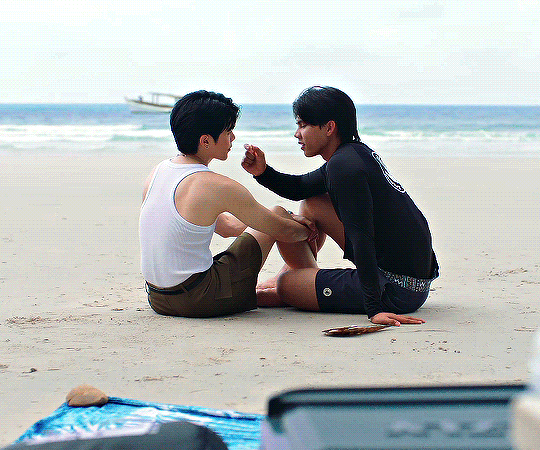
There are many shows that I loved this year and many favorites among them, but this one is my very favorite. This is my show. I could not begin to tell you how excited I was when we learned that we'd be getting a new FortPeat project and that we were going to get to see them act together again. I love them both so much that I was always going to love this show because of them regardless of what it ended up being.
But what it ended up being was a really damn good show. I don't care what anyone says. It was so much more than just amazing chemistry and love scenes. I was writing about this show weekly. It had me talking about the acting and styling, keeping track of colors, doing scene breakdowns and character analysis, coming up with clown theories, the whole nine.
Love Sea is that girl. For me.
♡ I Saw You in My Dream

This show gave us the softest, sweetest love, mutual horniness, joyous sex, casual affection, supportive parents, and then without even trying, it also healed everyone's religious trauma in the kindest and gentlest way possible. It was wonderful and refreshing and healing to see queer characters have a warm, loving relationship with their faith and have it be something that gave them comfort and that they could share.
Seeing Ai just casually sitting in a cathedral to find some peace meant so much to me. I'm so happy and grateful that this show exists.
♡ Unknown

I want this show injected directly into my veins because, babes, everything about it is like heroin to me. It's not just a favorite of the year, it's a favorite of all time. It's quiet in this intense way that I really enjoy, which is a quality shared by a few other entries on this list. I love when a show can make me feel everything and god, did this make me feel everything.
I've already talked about how phenomenal the acting is in my favorite performances list but it's impossible to praise this show without also talking about the lighting and cinematography and colors and chemistry because it's all beautiful. It's a goddamn masterpiece.
♡ Knock Knock Boys

I genuinely love when a show takes me by surprise. I hadn't even fully decided whether I was going to watch it or not before it aired and I don't quite remember what convinced me to give it a chance, but I'm so glad that I did.
You look at it and think all you're gonna get from it is a fun silly time. And you do get a fun silly time! Then you go a little deeper and you realize what you actually have is a series about learning to communicate within relationships and outside of them, making peace with yourself, navigating love and sex, and figuring out what you really want in life, all tied up in this giant sparkly sex positive bow. It's an absolute gem.
♡ We Are
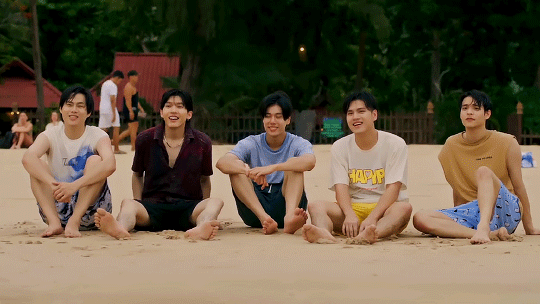
We Are is the epitome of what I like to call a cotton candy show: it's sweet, fluffy, and fun. There aren't really any stakes, there's not a whole lot going on. It's just a little treat there to give you a good time.
And boy howdy did it air when I needed it most. I had a very, very rough summer and every episode of this show felt like I was getting a hug. It was so cozy and comforting. It was a love letter to friendship and it has my entire heart.
♡ Our Youth

At the time of writing this series still has three episodes left before it ends and even though a lot can go wrong in three episodes, I'm still confident in saying that this is one of my favorite shows of the year. In fact, this may be my favorite Japanese BL. Full stop.
There is just something so...entrancing about it. That quiet intensity I mentioned earlier. I love how it uses silence and light, I love that every piece of dialogue feels like it weighs a thousand pounds, I especially love what Kamimura Kenshin has done and continues to with his portrayal of Haruki. I just love everything about this drama. Everything.
♡ Two Worlds
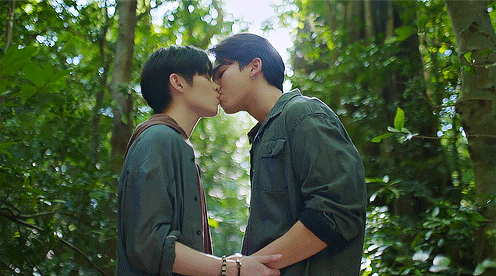
I was so damn excited for this show from the moment I first saw the pilot. It was one of my most anticipated dramas of the year and not only is it my favorite MaxNat project to date, it was my first time ever writing about colors!
The killer chemistry and truly beautiful love scenes were all but a given and the fantasy element was a trip, but writing about the colors was what really made this for me. The sleeper color demon in my brain (which sneaks in when you attend @respectthepetty Colors College) had me looking at the stitching on clothing and the exact shades used in any given plaid pattern to try and make sense of the random and ever-changing use of colors in this show and I had the time of my life doing it.
♡ Love for Love's Sake
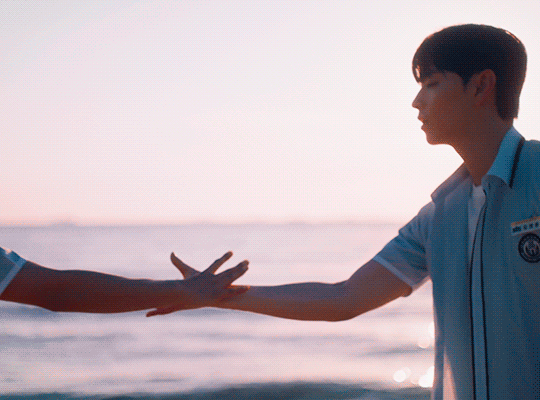
We had this show for a grand total of TWO WEEKS. Isn't that insane?Just two weeks and it gave us these beautiful characters who tore us all open in the best way and left us gasping for air and infinitely glad that this show was made and that we got to watch it. That was my experience, at least.
To me this is a show about learning to heal and to love yourself through loving somebody else. There are as many interpretations of it as there are people who watched it--as it should be--and mine ultimately comes down to this: Myung Ha's best friend loved him so much and wanted so dearly for him to be happy that he created a reality where Myung Ha got the love and sense of belonging that he always deserved, and it was beautiful.
♡ Wandee Goodday

What's even better than being blessed with the gift that is bunny boy Great Sapol? Sex positivity! Condoms! Advocating for sexual health! The bunny boy being the greenest flag in all the land! Ace rep! Ace rep with a happy ending! BL Mother of the Year Cher! The first GMMTV wedding since same sex marriage was legalized in Thailand! Horny gym massages! Therapy! Title Kirati finally being a good boy in a BL!
And on and on and on! In my heart and in my soul, I'm a good time girl and this show was SUCH a good time. It was a delightful little treat from beginning to end.
♡ The Loyal Pin

You know a show is special when just hearing the intro music makes you feel happy and comforted and giddy with anticipation. This is a beautiful show. It feels like the dessert table at a fancy, expensive wedding.
Everything is well done. Everything. The acting and the story are incredible, the cinematography is stunning, the styling is gorgeous, the OST fucks. It's just so damn good from top to bottom that it's become my favorite GL ever. I love it dearly.
♡ My Stand-In

Characters like Ming who are the human embodiment of lead paint and the stories they feature in aren't for everyone, but they sure are for me. Especially when those stories are led by great actors like Up and Poom who can have me in my feelings with the tiniest shift in their expressions.
They had me so in my feelings, in fact, that I arranged my watch schedule so I would always have a fluffy show to decompress with after every episode. It was that intense and if I loved it as much as I did, it was became Up and Poom were that good. I love a sweet love story but I also love a story about people who are DEEPLY deranged about each other.
♡ The On1y One

Even though I did not watch the finale of this show and will not watch it until such time as a second season has been announced, filmed, and is ready to premiere, it was still one of my favorites of the year. I just can't be mad at it.
It had everything that I love. Quiet intensity and great acting and dialogue and EXPRESSIONS and Benjamin Tsang's face and yearning and tiny little moments that live in my mind rent-free. I just wish it was complete because I love these characters so much and want to see them happy.
♡ Century of Love

I was raised on telenovelas. I've been watching them my whole life. So of course I'm always going to have a soft spot for BLs that scratch that lakorn/telenovela itch in my brain and that's exactly what this show did!
It gave us soulmates! Reincarnation! The red string of fate! Magic rocks! Wet dreams after a 124 year dry spell! Questionable CGI! Goddess-approved yaoi! And holding all of it together was Daou and Offroad's phenomenal chemistry. I fucking love this show!
♡ 4 Minutes

There are few things I love more in this BL watching life than letting Dr. Sammon take me on a wild ride, and boy was this a WILD FUCKING RIDE. I didn't come up with a single theory or do anything but cheer Tonkla on the entire time it was airing, I just experienced it.
Every episode was a feast for the eyes, whether it was the acting or the cinematography or the music or, as was usually the case, a stunning combination of all those things. We had to wait so long for this one and even though I wish it was longer, it was entirely worth the wait.
♡ See Your Love

Another one that has yet to finish airing but that's so lovely in every way that it has already found itself among the ranks of my favorite Taiwanese BLs ever. No surprise considering the team that made it also made another one of my faves.
And it really is lovely, unhinged assassination attempts and all. The love between the mains is a phenomenal combination of healing and horny and the story gives its characters--especially its deaf protagonist--so much humanity and treats them with care and respect. Not to mention that it features some of the best BL parents I've ever seen.
♡ High School Frenemy
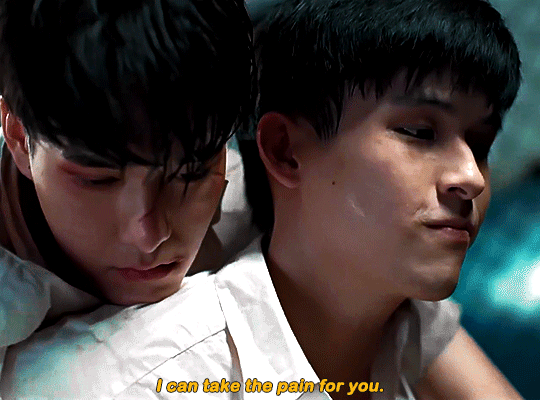
When I tell you I was so prepared for this to be a series that I ended up dropping after a few weeks. The only reason I even watched it initially was for Mark Pakin and then something happened and I ended up liveblogging all sixteen episodes and loving it so incandescently that it became one of my favorite shows of the year.
And it was alllll because of Sky and Nani and that phenomenal chemistry that came out of nowhere and hit me--and all of us--with a steel chair. Watching Saint and Shin say the most UNHINGED ROMANTIC SHIT TO EACH OTHER was truly one of the highlights of my year. The character writing was great, the acting was great, the friendships were top tier. Truly the biggest surprise of 2024.
If the "more than friends less than lovers" shirt was a show, it would be this show.
♡ Sugar Dog Life
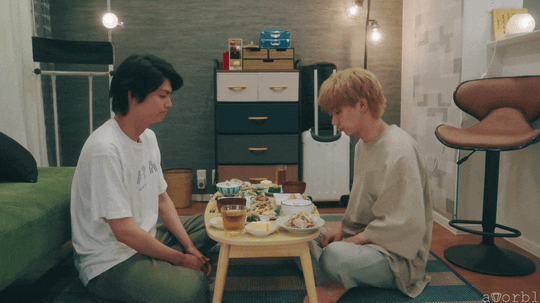
What a darling little treat of a show. It's so cozy and comfy and sweet. I'm always going to be a sucker for "food as a love language" shows and I enjoyed watching these two fall in love over meals so much.
As an aside, I spent almost the entire time slightly tormented because I couldn't figure out who Tanaka Koki reminded me of but I'm very happy to say that I figured it out: Sea Dechchart.
♡ Jack and Joker
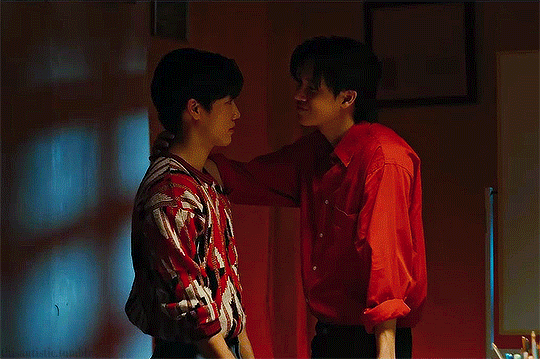
For me, it's impossible not to love something that was so clearly made with all the passion, joy, and love in the world and that is exactly the energy that Yin and War brought to this project and I adored it.
This show made me feel the entire spectrum of human emotion every single week. I was never not excited for the next episode, even when it made me sad. It was fun and chaotic and beautiful to look at and I'm so happy that it exists.
♡ First Note of Love

This series is just...so gentle. Even though loss is a central theme in the story, it's never portrayed in a looming, haunting way. Matt's presence is always felt but in a way that's very human and beautiful.
At its core, this story is about all the ways love and grief are intertwined and giving yourself a second chance and letting love back in and allowing yourself to feel and I love it so dearly. So dearly.
♡ Dead Friend Forever
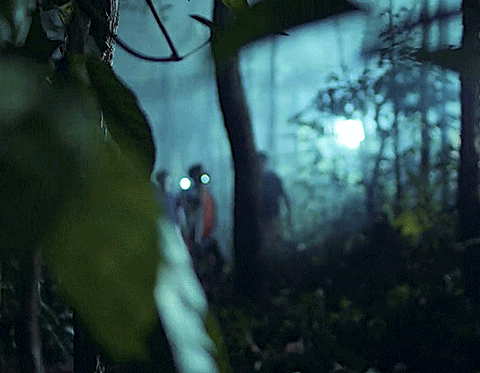
This is the show that finally got me to talk on my blog. I had such a great time being a clown and coming up with theories and reading other people's theories and spending entirely too much time looking at the minute details of that creepy damn mask.
It was a wild ride from start to finish and I enjoyed every minute of it. And it gave me TaBarcode, which was a gift I will cherish always even if thinking about them makes me want to listen to Rollin' in the Deep by Adele.
#babyangelsky's 2024 wrap up#love sea#i saw you in my dream#unknown the series#knock knock boys#we are the series#our youth#two worlds the series#wandee goodday#the loyal pin#my stand in#the on1y one#century of love#love for love's sake#4 minutes#see your love#high school frenemy#sugar dog life#jack and joker#first note of love#dead friend forever
107 notes
·
View notes
Text
Writeblr
Update: Wow i did not expect this to gain as much traction as it did haha. I've edited it a little, for clarity.
I realize I should probably make an intro post of sorts, so here it is.
Hi :-) My name (or at least online.) Is Sam. (he/him) I am over 18+, and I write queer, messed up stories. I'm autistic, trans, aromantic and almost all of my characters are queer, and non-neurotypical. I write absurdly long books, word limits are my absolute bane of existence. I also occasionally write shitty poetry that will never see the light of day.
I'm always looking for new writer friends, any and all advice is appreciated :) I will follow any writers who follow me :) I'm always looking for more projects to follow!
Thank you reading!
WIPS
DON'T LET THEM BURY ME
My main project at the minute is an southern gothic urban fantasy with religious trauma, body horror, and packed with queer hope. It has a absurdly detailed magic system, complicated world building, and It's in planning stage, and over 10,000 words of plot have been completed as well as the prologue. it is in the process of being written. (Around 20k, at the time of writing this.) I am working on publishing it online, and it's sure a process, lol.
READ SNIPPETS HERE
It begins!!! – @leave-a-message19 on Tumblr
small thing I've been working on – @leave-a-message19 on Tumblr
The people I've let proofread this chapter really liked this paragraph so i thought i would share it – @leave-a-message19 on Tumblr
#writeblr#writers on tumblr#writing#queer writers#autistic writer#creative writing#author#writerscommunity
171 notes
·
View notes
Note
I noticed in the flashbacks that all the stories are biblical up until the crucifixion. After the cruxifiction there are no biblical stories but only non religious historical events. Thoughts?
Hi @i-go-like-the-raven! 💕Hope you're having a good week. That's a great observation. Some thoughts on Golgotha, Rome, and why the Biblical story flashbacks might stop with Jesus below.

My take on this would be that the wordplay-happy Good Omens has used the Biblical story flashbacks to make a bildungsroman that-- wait for it lol-- builds towards the ancient Roman flashback 😂 and all that follows.
A bildungsroman, for anyone who doesn't know, is a story that is focused on the first, initial formation of a character's identity and worldview through the development of their own core spiritual and philosophical beliefs. It's sometimes a story about young adulthood but it doesn't necessarily have to be as it's never too late to start down a more free-thinking path.
If we're open-minded, curious people, then we're all always growing and changing and learning-- that never stops-- but a bildungsroman is mainly concerned with the very first time that a person begins to gain a little independence from those who raised them and so starts to form their own identity and worldview.
This involves deciding what of that they were taught they are going to continue to believe. It involves experiencing a lot of things for the first time, meeting new people who offer up different perspectives, and learning about the larger world and different schools of thought. It's basically the results of a person's initial, independent exploration of life on Earth.
Traditionally, by the end of a bildungsroman, the characters have emerged more fully into themselves and are in a more mature stage of adulthood. They will continue to grow and change but that initial process of forming a core, independent view of themselves and the world is complete. This is what I think that the Biblical stories in Good Omens are accomplishing in the overall narrative of the story.
Good Omens isn't Bible fanfiction-- it's a satire of oppressive systems. It's using The Bible to come at ideas of patriarchy and fascism that cause harm to so many. The whole Bible is like that but the stories that they have chosen to take a flamethrower to here are probably the most damaging and well-known and the ones best suited to most dramatically come at patriarchy, obedience, authority, etc..
Good Omens is a story about human living that is tackling things like trauma and mental health and has themes about autonomy as freedom and how we're the author of our own lives. The stories chosen across the board-- both the flashbacks and ones just alluded to or used to form the story in the present, like Armageddon-- are all ones best suited to be gutted like a fish in support of Good Omens' themes.
In Good Omens, The Four Horsepeople and Armageddon are used to describe a mental health crisis. It's use of the book that has done more damage to more people than anyone can count by doing a spin on the story where it's actually about how you survive trauma born *of* The Bible and other tools of oppression. Eden and Genesis are getting into ideas about authority, obedience, genocide, gender, patriarchy...
There's a mocking of Leviticus across several scenes and its unhealthy ideas about consumption in different parts of the story at the same time as the story also takes on lunacy 'wellness' ideas via Famine and the foodless food of Chow. It's talking a lot about the queer hate born of Sodom & Gommorah (hold that thought, please, as someone else asked for a post on that). It chose Job for the center of the flashbacks, since that very fucked up story lives at the intersection of all of the story's themes.
But why might the Biblical flashbacks themselves end with Golgotha, as you ask?
Part of it, I think, is a witty little wink to the historical timeline that, for ages, stopped and restarted time with the birth of Christ-- B.C. and A.D.. Everything was centered around Jesus for everyone, whether you believed in that or not. The arrival of Jesus was the be all and end all of everything. This is also in Michael's description of Armageddon in S2-- how, if successful, Armageddon-- which supposedly includes the return of Jesus-- would mean the end of time and the world and the beginning of the misery of...

But The Second Coming is The Parousia, which is a Greek word meaning presence, and also what the concession stand in the theatre in the opening credits of S2 is named. This is a story about mindful, healthy living where Armageddon is a breakdown. This story is a lot more concerned about whether or not anyone is eating a cheese sandwich than it is about telling a story where Jesus is somehow back to judge everybody.
This is the Discworld-- we're all gods of the Disc. When we die, we go wherever we most believe we're supposed to be. That's what eternal life is. No one needs poor Jesus for that-- just leave him alone.
To this end, what has Good Omens done with Jesus to date?
He's just kinda there in the background for a minute in the flashbacks. 😂 Good Omens was basically like Jesus was a nice guy with some decent ideas, if a bit traumatized and repressed, and it's a damn shame he's dying in the background of this scene that is really focused on Crowley and Aziraphale and their romance.
Nothing says 'this story is not about The Bible but is using The Bible to come at toxicity that The Bible and things like it creates' more than this story about the angel and the demon living a human life on Earth has had Jesus on screen for exactly eleven seconds. 😂
Even better, the only thing about our main characters' personal connection to Jesus' story that we learn in this scene is that Crowley was who tempted Jesus in the desert-- a pitch-perfect detail that the food kinky Crowley, who is the antithesis of Raven Sable by design and believes in a more healthy way of living, was there going c'mon, man, why don't you flip those rocks into some bread? It's really, seriously not the end of the world? Starving yourself isn't great, actually?
But what makes that revelation in the Golgotha scene even better is the fact that it's an additional punchline to Aziraphale's flirtation in the present two episodes earlier. Jesus very famously shut down temptation in the desert-- so, in Good Omens, shut down Crowley-- with "get thee behind me, foul fiend" so when we find out that Jesus said that to Crowley, it makes the already deliciously blasphemous flirtation from Aziraphale back in 1.01 even funnier and filthier.

Here's the role of Jesus in Good Omens-- it's Aziraphale using a Jesus quote as sexual invitation. Telling Jesus' temptress that he has no intention whatsoever of resisting him like that uptight messiah did and he'd liked to be fucked asap, please. (The "after you" on the end of it is always the bit that sends me. 😂) This appears to be about as much Jesus as Good Omens plans on getting into here.
Jesus is in the background in Good Omens for a reason. The Second Coming is just Armageddon: Round Two. Jesus is not coming back to judge anybody. Frances McDormand is, in all likelihood, a Voice of God that talks to Aziraphale sometimes. She effectively is Aziraphale, which is probably why she's awesome.
Nothing about The Bible is going to happen in this story the way The Bible says it's going to happen because this is a satire, not Bible fanfiction. The angels and the demons exist in this story to talk about being human. This is a story about breaking these characters free of this stuff, not about retelling The Bible.
Golgotha is the end of the Biblical flashbacks because it's a scene contrasting definitions of the word passion. It's the Passion of the Christ meets the passion of the Crowley. The scene builds to the ending of our bildungsroman, which is Crowley telling Aziraphale that he's changed his name to Crowley. It symbolizes the identity he's formed for himself and, after S2, the audience understands it even more because, having seen the Job minisode, we now know why the crow.
We got the sense of this being a romantic admittance back in S1, largely based on Aziraphale's reaction to it, but after S2? There's no way not to see the intimacy and heat in Aziraphale being a little jealous about Crowley's reputation as the great seductress and Crowley replying with the revelation that he's given himself a name that they both know that only Aziraphale understands.

Directly off of this, we chronologically ditch The Bible story flashbacks for good because, while stuff like Armageddon can be used in the present for other parts of the story, there's no need to set these characters in these Biblical flashbacks anymore because those were the foundations of this romance and the bildungsroman. They're to get us to Rome. They're to develop Crawley and Aziraphale, the angel that was on apple tree duty, into Crowley and The Angel of The Eastern Gate.
And it stops right here-- with the passion of the Christ being contrasted with romantic passion-- because this is the set up for Rome, where they more fully start to break free.

Off of Golgotha, we jump to what, for them, is about 30 seconds into the future, into the first historical flashback, and it's in ancient Rome, which is to where our bildungsroman was building. It's time for them to start writing their own roman-- an old word for a novel. Their book of life began with Eden but The Bible stories are just their youthful origins and their life on Earth is the story they're writing together, for which the Biblical stories are just the first book and the start of the volume that is more fully their own is Rome.
Rome represents Crowley and Aziraphale both on the other side of their early Bible days. They also can't go any further with The Bible here because-- like for many humans whose experiences this is all paralleling-- it's the source of trauma. Crowley and Aziraphale are more definitively themselves by Rome-- more ready for something a bit more full grown. The story here and on out is about how it's human living that is healing and holy and that's going in the opposite direction of the self-denial of The Bible.

There ain't no story in The Bible that was ever gonna make for a flashback that could get Crowley a partnered oyster, ok? 😂 For that, he needed the emerged and a little more worldly Angel of The Eastern Gate, ya feel me?

Pretty much the most subversive thing this story does is pat The Bible on the head and say oh, flaying you alive to talk about how toxic you are will do nicely to form a nice little bildungsroman for the early days of this romance between these queers with religious trauma... but you're definitely not the basis of our entire story because that's about walking the Earth. We're going to jump to the history of the real world the second that angel and that demon go from hilariously parasexual ox ribs to the Aphrodite and Eros of actually going out for oysters.
The Bible flashbacks in Good Omens end with the passion of Golgotha contrasting death with the little death as it sets up for the romance of Rome and all the years of doing as the Romans do that follow.
25 notes
·
View notes
Text
Peter is brand Taylor talking to real Taylor, I Look in People’s Windows is real Taylor talking to brand Taylor (the two were supposed to become one, but the more famous she gets the harder it is)😭😭
The whole theme of the album is Taylor herself and her career and how the industry has affected her, joe/matty/travis/kim are just red herrings bye im gonna go cry listening to Peter
(more details⬇️)
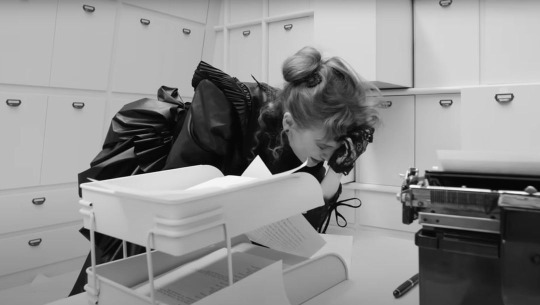
I’m not saying that some songs aren’t about those specific people, I’m just saying they’re only PART OF the theme, I believe her father (and other big heads in the industry) had a big influence on her career and forced her to stay in the closet from the very beginning, that messed her up, she had to hide her true self and keep bearding, and in 2019 she planned to come out but didn’t because of the masters heist, now it’s because she’s gotten more famous than ever that she has too much to lose. So maybe these men he dated, she did like them and she had multiple feelings when these relationships ended, but it’s all part of who the industry had made her into; she had one true love (maybe Karlie) but she couldn’t be with that person that’s why some songs are about a true deep love lost, but that’s still part of the “her career” theme, because of her career, she can’t be with that person. (more details⬇️)

What’s really interesting in this theme is that she’s calling out her father in multiple songs because he really made her life harder…
In Cassandra, (the obvious theory is that Cassandra representing gaylors bc we’ve been saying the truth but never believed. And the first verse is about her getting the news of her masters heist just before her coming out plan, and then “stone’s thrown” is referencing Stonewall.) And in the bridge “They knew the whole time that I was onto something. The family, the pure greed, the Christian chorus line. They all said nothing. Blood's thick but nothing like a payroll. Bet they never spared a prayer for my soul” she’s saying her family knew something but said nothing because greed and money, we saw the leaked emails of her father and how he cares more about making money out of Taylor’s career than caring about her as his daughter, so I think this bridge is about her father, also about religious trauma may or may not due to him.
In The Bolter, “A curious child, ever reviled by everyone except her own father. With a quite bewitching face, splendidly selfish, charmingly helpless, excellent fun 'til you get to know her, then she runs like it's a race” she’s talking about herself being a precocious uniquely intelligent ambitious child, which everyone reviled except her father. why? because he wanted to invest money on her, he controlled how she conducted her career from the beginning.
What’s crazier is that Robin may be about her father too. That song sounds like a sweet song but she’s faking it like “all this showmanship to keep it for you in sweetness”. If she’s referring to her father (only wanting to make money out of her career) in this song then “you’re an animal, you are bloodthirsty” makes so much more sense. And the “buried down deep and out of your reach, the secret we all vowed to keep it from you in sweetness” her father probably knows about her queerness but wants her and everyone to keep it quiet.
In But Daddy I Love Him, “people only raise you to cage you” is pretty obvious about her father forcing her to stay in the closet, and “people try and save you cause they hate you” is literally about homophobes. “Dutiful daughter, all my plans were laid” is about her father laying all the plans for her, which isn’t always what she wants. “I'd rather burn my whole life down, than listen to one more second of all this bitching and moaning. I'll tell you something about my good name, it's mine alone to disgrace” reminds me of that scene in Miss Americana where her father was lecturing why she couldn’t public her opinions. “Thinking it can change the beat of my heart when he touches me. And counteract the chemistry, and undo the destiny” is so queer coded. “Sanctimoniously performing soliloquies I'll never see / You ain't gotta pray for me” another reference to religious trauma.
So all of this, about her father, about her lover and other men, it’s all connected to her career and she’s looking back at it, thinking and reflecting on it, that’s it that’s the blog
142 notes
·
View notes
Text
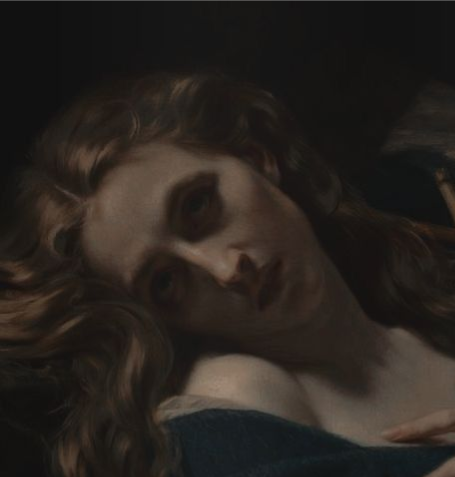
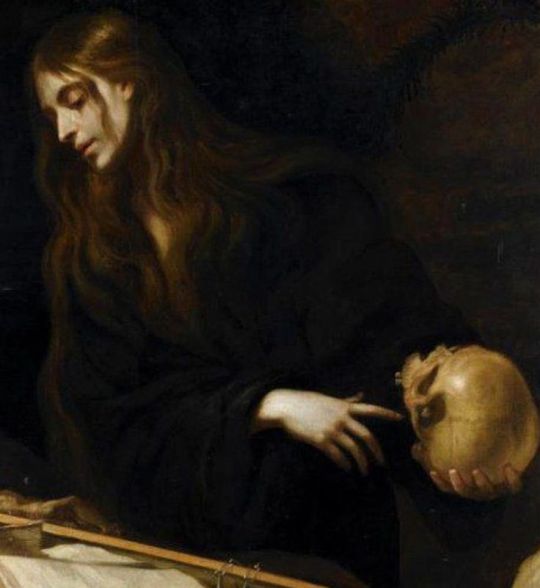
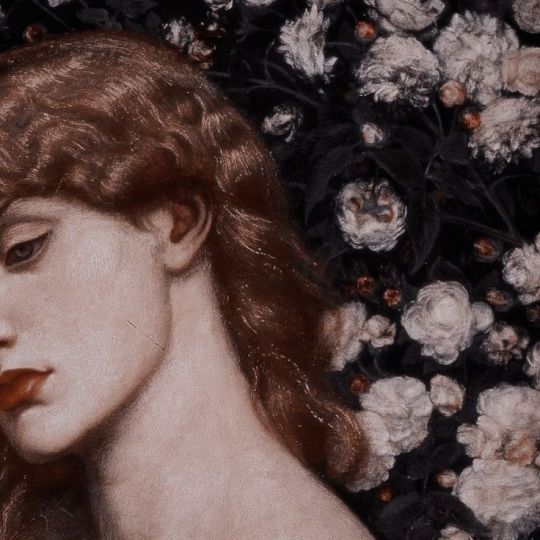
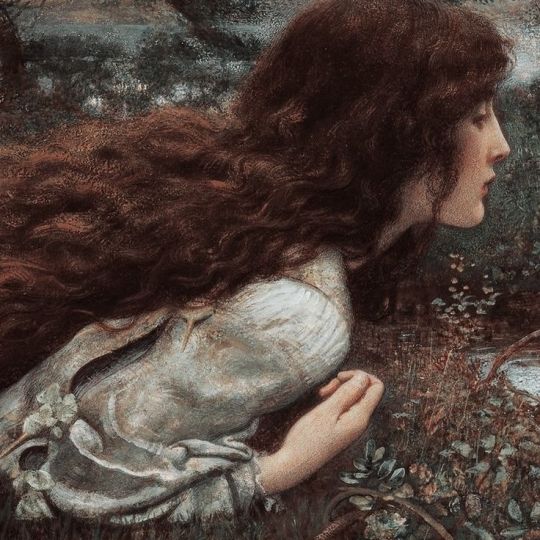
My newest book, Unholy with Eyes like Wolves, a sapphic gothic horror romance with vampires (Carmilla/FMC/Erzsébet Báthory) is coming out on April 16th!
You can pre-order the e-book here.
***
“Indulgent, depraved, and sanguine, UNHOLY WITH EYES LIKE WOLVES is a gory fugue that will have readers cheering for its queer women no matter the wrongs they commit in pursuit of survival and salvation.” – Ladz, author of THE FEALTY OF MONSTERS
"Sumptuous and intoxicating as a black rose, UNHOLY WITH EYES LIKE WOLVES unfurls slowly to reveal the intricate layers of its themes, from forbidden sapphic desire to the religious subjugation of women. A must-read for those who yearn to become the monster and seek liberation through transgression." – Camilla Andrew, author of THE SANGUINE SORCERESS
***
Noémie, a dishonored and widowed noblewoman in early 17th century Hungary, finds herself in an unenviable position: After grievous trauma and loss, her last chance to regain her honor comes when she must serve as Lady Erzsébet Báthory’s handmaiden. Báthory is stoic and imperious, and as Noémie struggles to acclimate and accept her present and future, she begins to have dreams about a mysterious woman. Worse, there are stories of disappearance and deaths in the castle, and Noémie might be next.
A sapphic historical horror romance with vampires and based on CARMILLA. Perfect for fans of A DOWRY OF BLOOD.
104 notes
·
View notes
Text
Fandom Manifesto: Hello From The Hallowoods
(Originally written for the Fandomanifesto community on Pillowfort.)
Here's a (mostly spoiler-free) fandom manifesto for my favorite podcast, Hello From The Hallowoods. (Please try to keep the comments on this post spoiler-free as well.)
What is a fandom manifesto?
Inspired by ship manifestos, a fandom manifesto is an essay meant to introduce people to a fandom and promote it by explaining its appeal. It's a really fun tradition that I would love to keep going.
What is Hello From The Hallowoods?
Darker than your dreams, and farther North than you remember, there is a forest where life and death meet…
Hello From The Hallowoods is a queer horror podcast written and produced by William A. Wellman (they/them). This is the official description (taken from Spotify):
Come walk between the black pines! In this award-winning queer fiction podcast, a cosmic narrator follows the increasingly connected residents of the forest at the end of the world. It's a bittersweet story that explores queer identity, horror genre tropes, and finding hope in humanity's last moments.
It's set in a forest in northern Canada (the Hallowoods) in a post-apocalyptic world plagued by the black rains. The story follows the inhabitants of the Hallowoods—only some of whom are alive and human—as their lives become increasingly interconnected.
The podcast is narrated by Nikignik (he/they), also known as One Hundred Eyes in the Dark, an eldritch god who speaks directly to the listener via their nightmares. He begins to tell these stories because he's grieving his partner, another god called Marolmar (he/him), and humans were the last thing Marolmar created. Over time, Nikignik changes from a more passive narrator to an active character in the story.
There are a lot of characters, including but not limited to:
a nonbinary Frankenstein's creature piercing together their identity
a trans ghost dealing with his occultist father
an invisible man finding love at first sight
a genderfluid storm witch trying to prove themself
a retired rockstar and her punk butch lesbian daughter
a floral-suit-wearing demon on a celestial audit of earth
a starwolf on a mission to kill said demon
a killer robot skull and his pet dead seagull
an unkindness of ravens (yes, they are one character)
… and many, many more.
How scary is it?
It's a horror podcast, so there are some scary moments, but for me, the story feels very comforting and bittersweet as it explores horror tropes in a really unique way. According to the website:
It's been described as a show that helps you sleep easier, rather than one that keeps you up at night.
The story also explores themes like religious trauma, isolation, death, grief, and queerphobia, so please check the content warnings at the end of each episode description or at the start of each episode transcript. Transcripts are available on the website.
Why should I listen to it?
If the description above didn't convince you, here are some more reasons why you should listen to Hello From The Hallowoods.
There is so much content! I often complain about books being almost always standalones or duologies lately and TV seasons only being 8-10 episodes. If I really like something, I want to spend as much time with it as possible!
With HFTH, I don't have that problem because there is so much to listen to! There are currently (almost) 150 episodes available (plus a few live shows and bonus episodes), and new episodes come out every Wednesday. There are also weekly 100-word bonus stories on Patreon, and a tie-in novel called One Hundred Eyes In The Dark is currently in the works, so if you're looking for a story you can get really invested in (or if you're angry that all your favorite shows have been canceled), HFTH is perfect for you!
There are so many queer characters, disabled characters, and characters of color! If you're looking for a really diverse show, you will love HFTH. (I cried when I heard a character describe herself as aromantic.) But even aside from the diversity, the characters are just amazing. I mean, "What if Frankenstein's creature got love and support and was an absolute cinnamon roll?" is the perfect character concept. The villains are also really compelling and well-written.
It's a great introduction to podcasts, especially for book lovers, because it often feels like a very immersive audiobook! The voice acting and music are incredible, and even though there are a lot of characters, you can tell them apart very easily by their voices. If you like fantasy and horror books, this could be your introduction to the world of audio dramas.
That being said, if you have listened to other horror podcasts before, you will still love this one! It sometimes reminds me of Welcome To Night Vale, but the setting and characters are very unique, and the writing is so, so beautiful.
It's also a great introduction to horror! I used to avoid horror media because I get scared very easily, but horror podcasts (and especially Hello From The Hallowoods) made me discover how much I actually enjoy horror. HFTH explores horror tropes in such a kind, unique, and hopeful way, and as sappy as that sounds, listening to it makes the horrors of everyday life a little easier to deal with.
If you like Malevolent (another really great horror podcast), Harlan Guthrie has a guest role in HFTH! You might also recognize Mx. Wellman's voice from other podcasts like WOE.BEGONE, The Silt Verses or Old Gods of Appalachia.
The fandom is amazing! Everyone is so kind and talented, and we always have a lot of fun theorizing about what will happen next. There's even a fan-run Discord server!
We also have a fan wiki, and in addition to the official information, we also have a "fun gender" for each character. Here are some of my favorites:
Tumblr Sexyman (Official)
Eye-Affiliated Podcast Host
Deer that will fuck you up
Whatever the hell was going on with the guy from Shape Of Water
Nightmare Personality
Hot Topic Goth
Dilf Automobile
How do I listen to it?
You can listen to Hello From The Hallowoods on the podcatcher of your choice. Here are some suggestions from the Hallowoods website:
Spotify
Apple Podcasts
Podbean
YouTube
Google Podcasts
It's not an anthology, so please listen to it from the beginning to see how the different characters and plot threads come together.
The show is entirely ad-free and sponsor-free, so if you like it and want to financially support it, please consider joining the show’s Patreon.
And that's it! There are many things I didn't include for spoiler reasons, but this should give you a basic idea of what HFTH is about and why I love it so much.
I hope I convinced you to listen to Hello From The Hallowoods, and maybe you will love it as much as I do!
#hello from the hallowoods#hfth#fandom manifesto#podcast recs#podcast recommendations#horror podcasts#long post
103 notes
·
View notes
Text
bury your gays
So after being in the trenches of this specific fight for longer than most people on Tumblr have been alive, here's the conclusion I've ultimately come to.
To begin with, let's be clear: your motives and your intentions and the ~artistic value~ of your buried gay are as completely fucking irrelevant as the well-meaning beauty of the fireworks you set off next to a school shooter survivor. There is zero argument that "oh but cast restrictions/story beats/it wasn't ~really~ the trope because it didn't fill X/Y/Z requirements that sometimes people complain about." You killed a queer character, full stop, and that is a trauma trigger for a huge section of your potential audience. That is real people, real pain, real harm.
Of course, in fandom, we (mostly) recognize that "this is a common trigger" is not a good reason not to write something at all. It's as important to be able to write the entire diversity of human experience as it is to not retraumatize people. Not only because different people have different needs from their representation, not only because what hurts one might help another, not only because we as a community can never have a mature and fully-developed artistic expression if there are things we religiously avoid, but also simply because you can write whatever you want forever is a pretty fundamental principle of art! (especially in a time of rampant fascism 🙃)
So we have these two conflicting pressures: we need to be able to write about anything we want, but we also need to not cause people to spiral and hurt themselves and feel that they've been murdered by proxy, again. In fandom, our solution to this is very elegant; with common triggers, echoes of experiences that we know that a lot of people will be set off by because those experiences are, tragically, known to be widespread trauma... we use trigger warnings. We give people the information they need to decide whether or not to engage - or, how to engage and to prepare themselves, if there is a risk to them.
Now media outside fandom does not, typically, have trigger warnings, but it still actually does have a pretty strong language of intent. People with years of media savvy can generally tell within the first few episodes of a TV show what kind of show it is, if it's a muppet universe where the good guys never really get hurt and any absurd injury is survivable or a rollicking adventure where likable red shirts can have small arcs and still die but main cast will always get a happy ending or a horror fest where no one is safe even if their name is in the title of the show, or anything in between. This is very much like a trigger warning; it gives people the information they need, the ability to know whether to invest in any given character as a story of triumph or as a potential tragedy.
And my ultimate conclusion, after all these years of this argument, is that the moral and ethical culpability of a storyteller rests there. If you are a competent writer, you understand the tone and expectations you have set; those choices are an implicit promise, a contract between you and your audience. It is possible to break that promise responsibly - for example, much as you might promise to repair a shared table for a housemate over the weekend, and instead, as a deliberate shock, purchase a new, nicer one, you could promise your viewers a sitcom about heaven, and then make a sudden swerve into a character drama in hell in the season finale. Perhaps your housemate would rather have kept the ratty old table, or your audience would rather have watched the sitcom. But the possibility for harm is minor and remote, the possibility that they'll actually appreciate it a lot more than what they expected is very high, and the surprise is an important part of the positive experience. You should expect most people to consider you reasonable for your choice.
But promising a queer character will have a happy ending and then killing them off is more comparable to committing to monogamy and then, as a deliberate shock, bringing home a unicorn to have a threesome with you and your partner. Some people will think this is a neat surprise, yes. Other people will be hurt and offended, and people with trauma from being cheated on will be devastated, and you would have to be incredibly stupid not to anticipate those responses. You should expect many of your friends, or your audience, to consider you unethical, idiotic, or even cruel for what you've done.
So, long story short, at this point in my life, when I look at a media narrative that kills off a queer character, the one and only important question in my mind, is what promise did this narrative make about this character, leading up to that moment. What ending should a reasonable reader or viewer or listener have anticipated, based on the context of genre and role and any other information the story provides, not for any generic character in the universe but this exact one. And does that reasonable expectation match what happened. And if it does, probably as an audience we should all step back and breathe. And if it doesn't, then yeah, someone fucked up.
17 notes
·
View notes
Text
Obligatory Pinned Post
Hey y'all I'm Madeline (she/her). I've created this blog as a way to document my reconstruction journey. I hope that as I write and think that someone who also believed they had to leave because either they are queer or questioning or lost someone dear to them can resonate with my story.
This is a side blog, and I will follow from an old main account called linniewritesficz.
While I often contemplate going to seminary, I only have a minor in Religious Studies. I do not claim to be an expert or a clergy person and will not operate as such.
I believe in therapy, but I am not a therapist. I will attempt to offer advice when I see fit but please always seek out a professional.
I am about to begin the process of getting confirmed in the Episcopal church! While the trauma I experienced in my teenage years is still there, I haven't felt true acceptance like the kind I feel in my local church. I'm really excited to join it.
I am also a practitioner/mystic/witch and am learning how to syncretize that practice into my re-emerging faith. I'm reading a lot about St. Hildegard at the moment.
I am queer. It is a big part of my identity. This is a pro queer pro trans blog, and I will not tolerate any form of homophobia or transphobia.
This is also a pro choice, pro palestine, pro BIPOC, leftist blog. I believe in healthy discourse and respectful discussion, however zionism, islamaphobia, anti semitism, racism, or any hatred/discrimination for people who are historically marginalized will not be tolerated.
I'm so excited to engage on this journey and document it in a way that makes sense for me. I hope to connect with like-minded people and find the community I needed a long time ago.
#progressive christianity#progressive christian#queer christian#episcopal#christian witch#christopagan#christian mysticism#pinned intro#leftist christian#spirituality#spiritual journey#deconstructing christianity#deconstruction#reconstructing christianity#reconstruction#catholic#lutheran#anglican
60 notes
·
View notes
Text
Queer Fiction Free-for-All Book Bracket Tournament: Round 1C


Book summaries and submitted endorsements below:
Moby-Dick or, The Whale by Herman Melville
Endorsement from submitter:
Ishmael & Quee(r)queg do it better than your OTP ever could. "[W]hat's all this fuss I have been making about, thought I to myself—the man's a human being just as I am: he has just as much reason to fear me as I have to be afraid of him. Better sleep with a sober cannibal than a drunken Christian" “ How it is I know not; but there is no place like a bed for confidential disclosures between friends. Man and wife, they say, there open the very bottom of their souls to each other; and some old couples often lie and chat over old times till nearly morning. Thus, then, in our hearts’ honeymoon, lay I and Queequeg—a cosy, loving pair.” “ At length, by dint of much wriggling, and loud and incessant expostulations upon the unbecomingness of his hugging a fellow male in that matrimonial sort of style, I succeeded in extracting a grunt; and presently, he drew back his arm, shook himself all over like a Newfoundland dog just from the water, and sat up in bed, stiff as a pike-staff, looking at me, and rubbing his eyes as if he did not altogether remember how I came to be there, though a dim consciousness of knowing something about me seemed slowly dawning over him. Meanwhile, I lay quietly eyeing him, having no serious misgivings now, and bent upon narrowly observing so curious a creature.” “ I drew my bench near him, and made some friendly signs and hints, doing my best to talk with him meanwhile. At first he little noticed these advances; but presently, upon my referring to his last night’s hospitalities, he made out to ask me whether we were again to be bedfellows. I told him yes; whereat I thought he looked pleased, perhaps a little complimented.” Plus, the entirety of “A Squeeze of the Hand” Insane work.
"It is the horrible texture of a fabric that should be woven of ships' cables and hawsers. A Polar wind blows through it, and birds of prey hover over it." So Melville wrote of his masterpiece, one of the greatest works of imagination in literary history. In part, Moby-Dick is the story of an eerily compelling madman pursuing an unholy war against a creature as vast and dangerous and unknowable as the sea itself. But more than just a novel of adventure, more than an encyclopaedia of whaling lore and legend, the book can be seen as part of its author's lifelong meditation on America. Written with wonderfully redemptive humour, Moby-Dick is also a profound inquiry into character, faith, and the nature of perception.
Classics, American literature, nautical fiction, adult
The Fall That Saved Us by Tamara Jerée
Endorsement from submitter: "Angels and demons love story."
Cassiel has given up the family tradition of demon hunting, leaving behind her sacred angelic duty and fated sword. What she can’t leave behind are the scars. To cope, she spends her days immersed in work, pouring all her attention into New Haven Books, her small bookstore and anchor in the new world she’s carved for herself.
But the past hasn’t let go of Cassiel yet. When a succubus named Avitue arrives to claim her angel-touched soul, Cassiel’s old hunter instincts flare, forcing her to choose between old knowledge and her truth. What should be a fatal seduction becomes a bargain neither woman expects. As they grow closer, Avitue is surprised to find her own pain reflected in Cassiel, a nephilim deemed fallen by her own family’s standards.
By choosing trust, they reveal the lies that bind them. Falling for each other begins a path towards healing. But exorcising the effects of trauma is harder than naming it, and to explore the unfettered possibility Avitue represents, Cassiel must find a way to reclaim and redefine her angelic heritage.
Romance, fantasy, urban fantasy, religious/familial trauma, adult
#polls#queer fiction free for all#moby dick#herman melville#moby dick or the whale#the fall that saved us#tamara jerée#tamara jeree#books#fiction#booklr#lgbtqia#tumblr polls#bookblr#book#lgbt books#queer books#poll#fiction books#book polls#queer lit#queer literature
15 notes
·
View notes